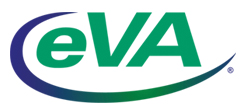
By Hank Wieland
Few journalists have had as strong a career as Bill McCloskey, retired Associated Press telecommunications reporter, former public relations executive with BellSouth, and currently a part-time copy editor at Warren Communications News and its distinguished family of high-tech paid subscription newsletters.
Bill also gives back to his profession through volunteer service on the Society of Professional Journalists and Sigma Delta Chi Foundation Boards of Directors. There’s hardly a better expert to talk to about the field of journalism, its current issues and longer-term outlook.
Q. What do you think of the Obama administration’s examination of AP reporters’ phone records? Lawful? Reasonable or appropriate to protect national security? Likely or unlikely to have a chilling impact on news sources?
A. Ya know, they could have just asked before they started the fishing expedition. The AP could have had the opportunity to ask a judge to block the request. That would have answered the “lawful” and “reasonable” questions. Of course it chills news sources.
Q. With electronic media on the rise, print media on the decline and the economics of journalism in flux, what do you foresee for the field of journalism in the next 5-10 years?
A. As it always has been those news organizations who give their audience the best information the fastest will attract the most customers and be able to sell the most ads or the most subscriptions. Radio didn’t kill print. TV didn’t kill radio. Cable didn’t kill TV. Should I go on?
Q. In addition to the shift to electronic media, the immense strength of the Internet as a resource of so much free information, and challenging financials for traditional media, what other changes do you anticipate for journalism?
A. Journalists will deliver news the way news consumers want to receive it. Electronic media (including hybrids like Bloomberg) are hiring while big city papers are downsizing. Small town newspapers are doing well.
Q. Why do you think the public’s opinion of journalists is relatively low? And how can that reputation be improved?
A. The public unfortunately thinks if it is on TV it is “news.” Organizations like the Society of Professional Journalists need to educate citizens how to be better consumers of news. That is why the Sigma Delta Chi Foundation of Washington helped sponsor a Girl Scouts of America “news literacy” program. Buyer/reader/listener/viewer beware.
Q. The Washington Post recently ended its 40 years of providing an independent ombudsman to examine the newspaper’s content and handle reader feedback, instead now providing a staffer to respond to comments – good or bad move, and what’s your reasoning?
A. SPJ helped get Congress to order Stars & Stripes the military newspaper to hire an ombudsman. It is an important position to independently comment on what is being written and what is influencing those stories. Consumers of news can continue to write to editors and publishers to express concerns. A positive spin would be – we’ve eliminated the middleman, let’s complain directly to the boss.
Q. As a copy editor and former wire service reporter, how do you feel about the current state of writing, editing and proofreading by young journalists? Are their skills up to the task?
A. I wish I wrote as well as my current colleagues did when I was at their stage of my career. The problem is that there are too few editors editing too much copy. I have always thought that many reporters are pressed by too many deadlines and that just makes it impossible to give copy that one last scan that would spot a problem. With fewer editors assigned to backstop, errors make it through the system making news consumers more suspicious about all of the news presented to them.
Q. Is there a solution?
A. News organizations and perhaps philanthropic organizations ought to fund continuing training for journalists. Schools today are teaching how to use the new digital equipment. That’s great, but, someone has to be teaching ethics, story-telling, use of public records and open meeting laws and other practical journalism skills.
Thank you, Bill.





